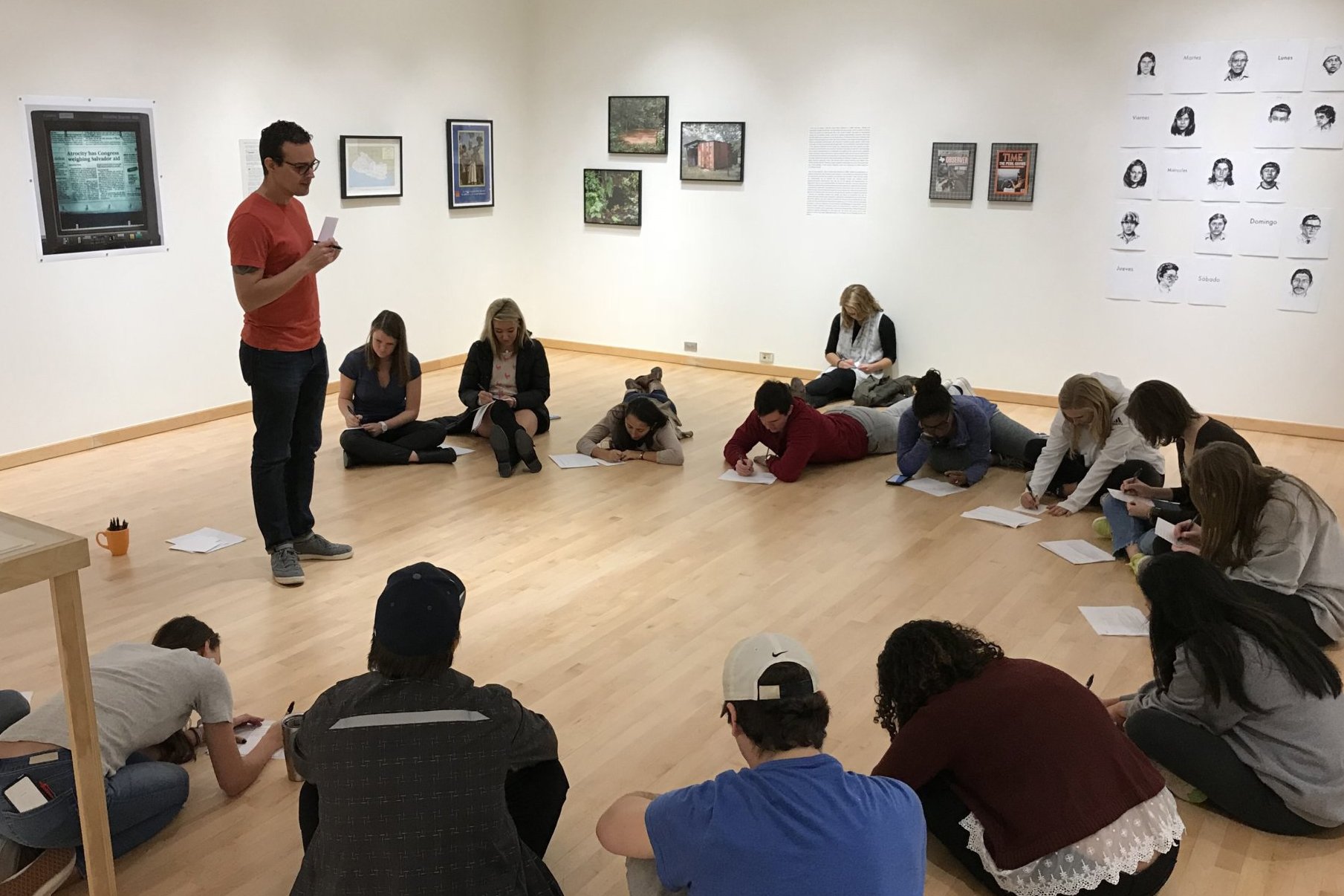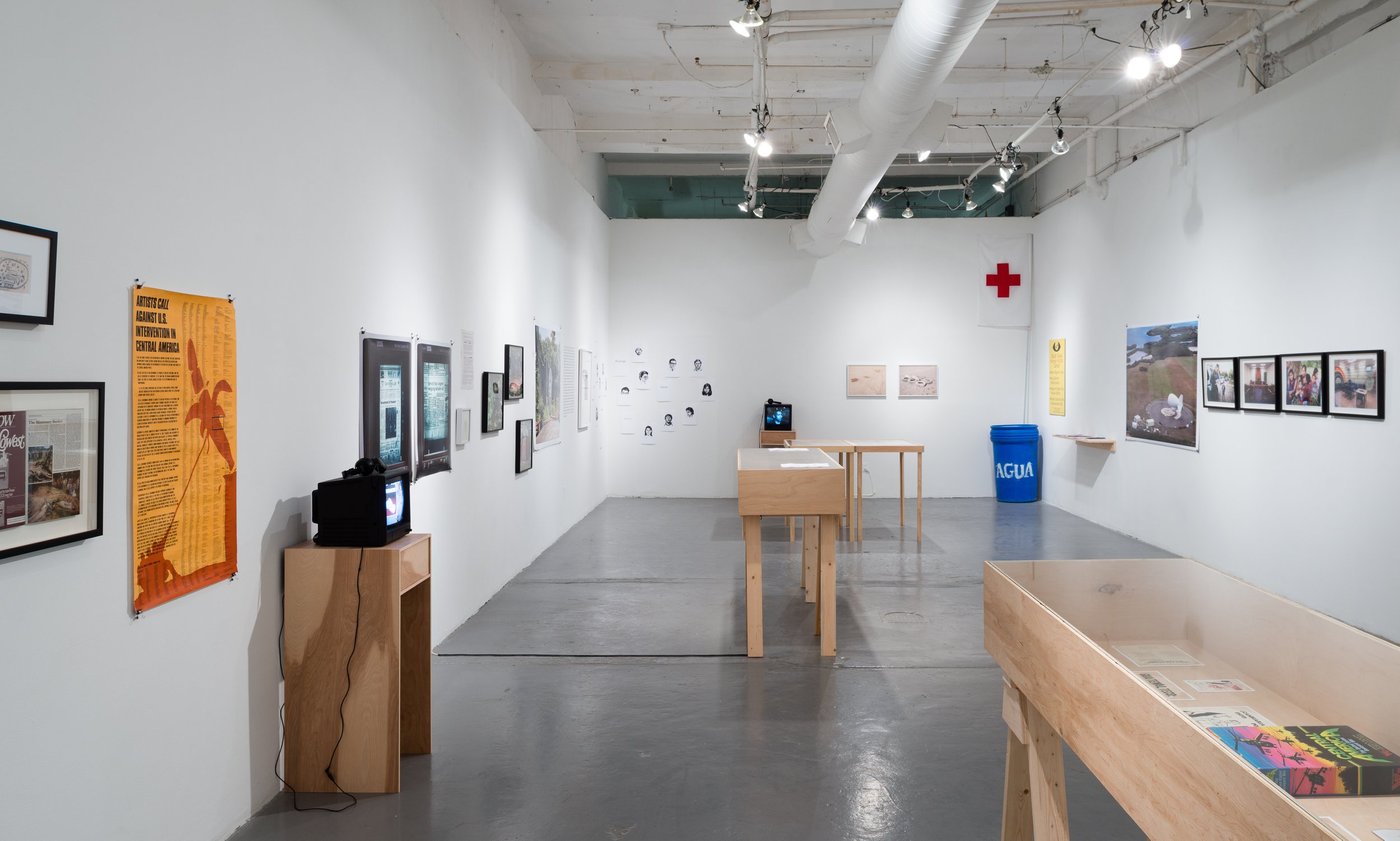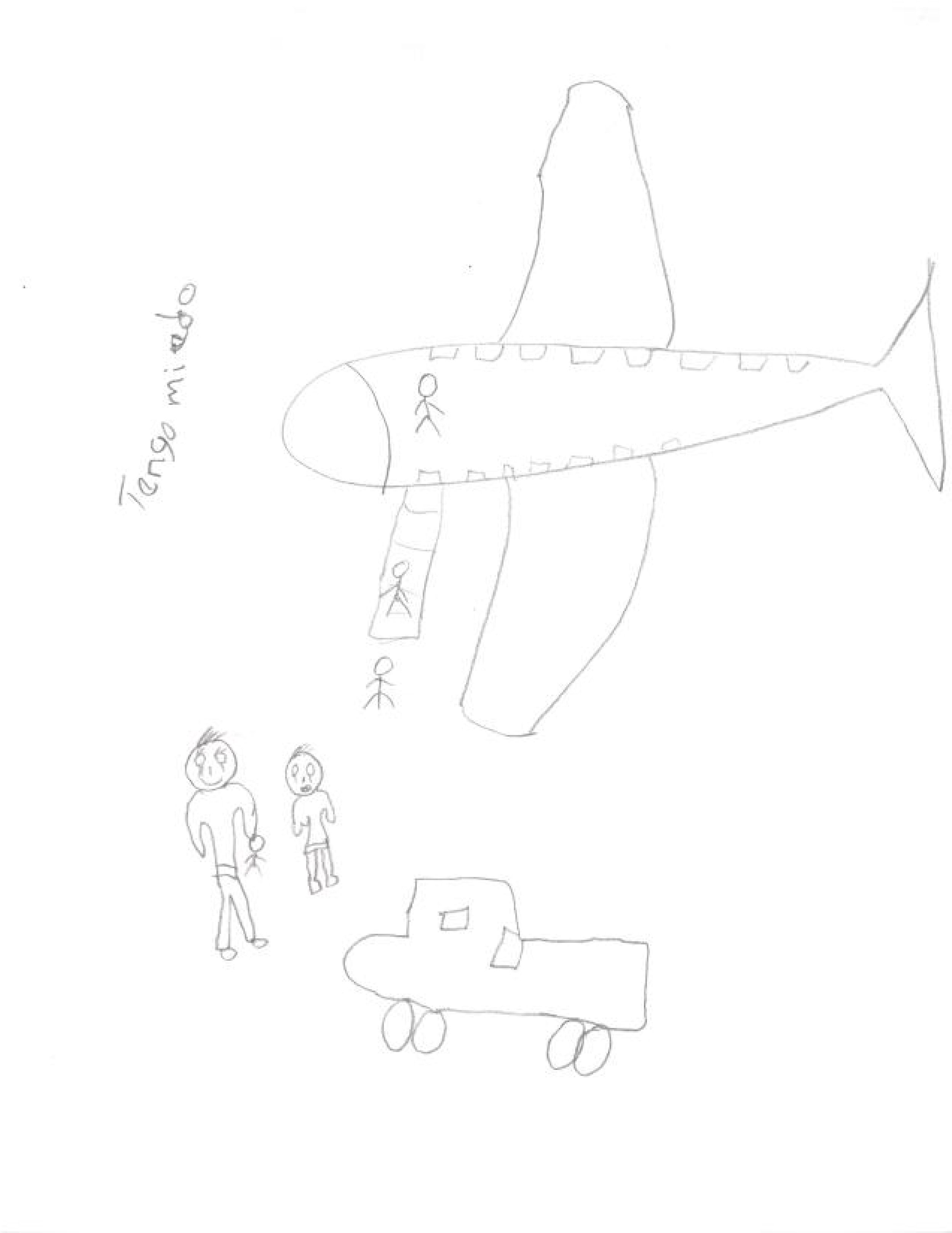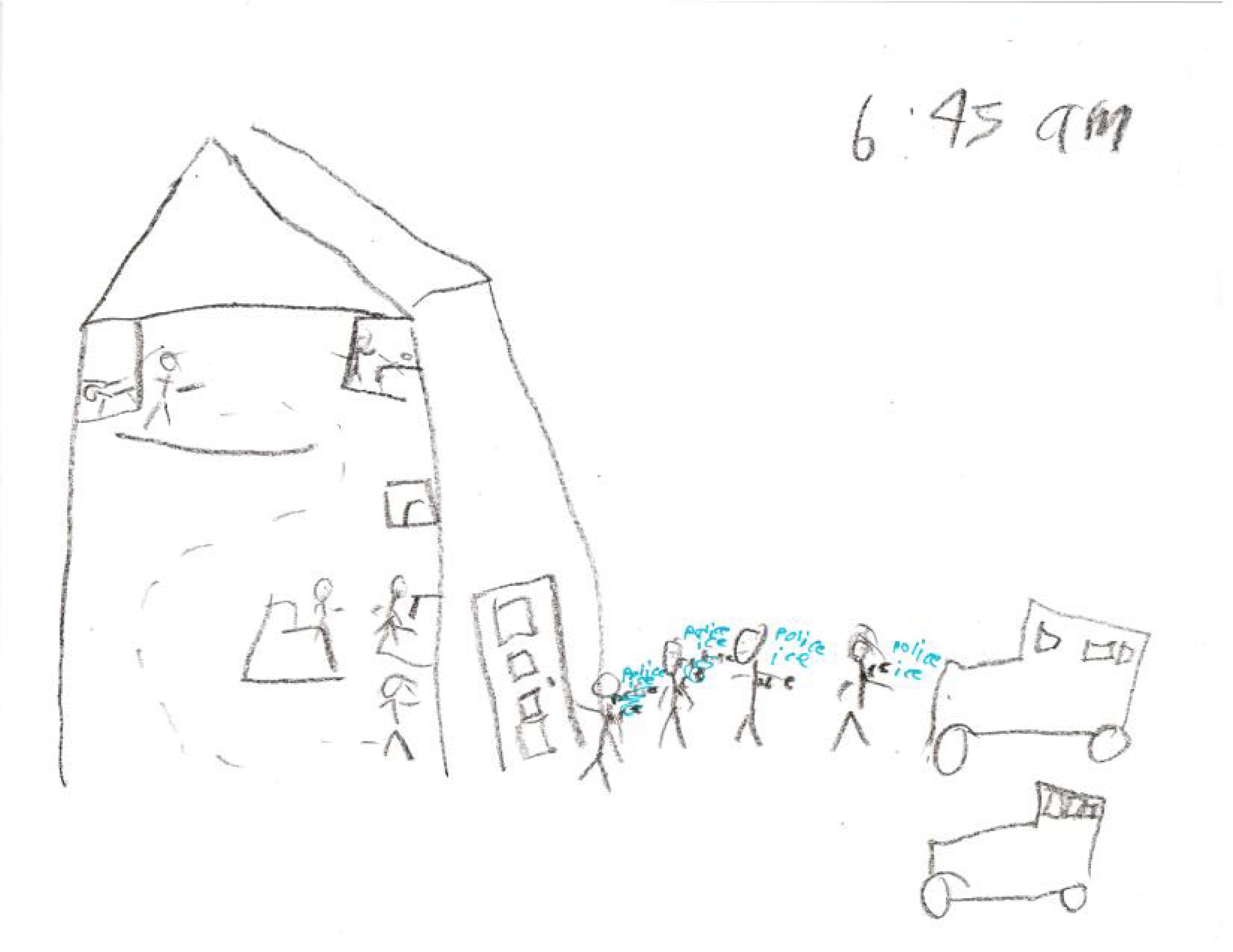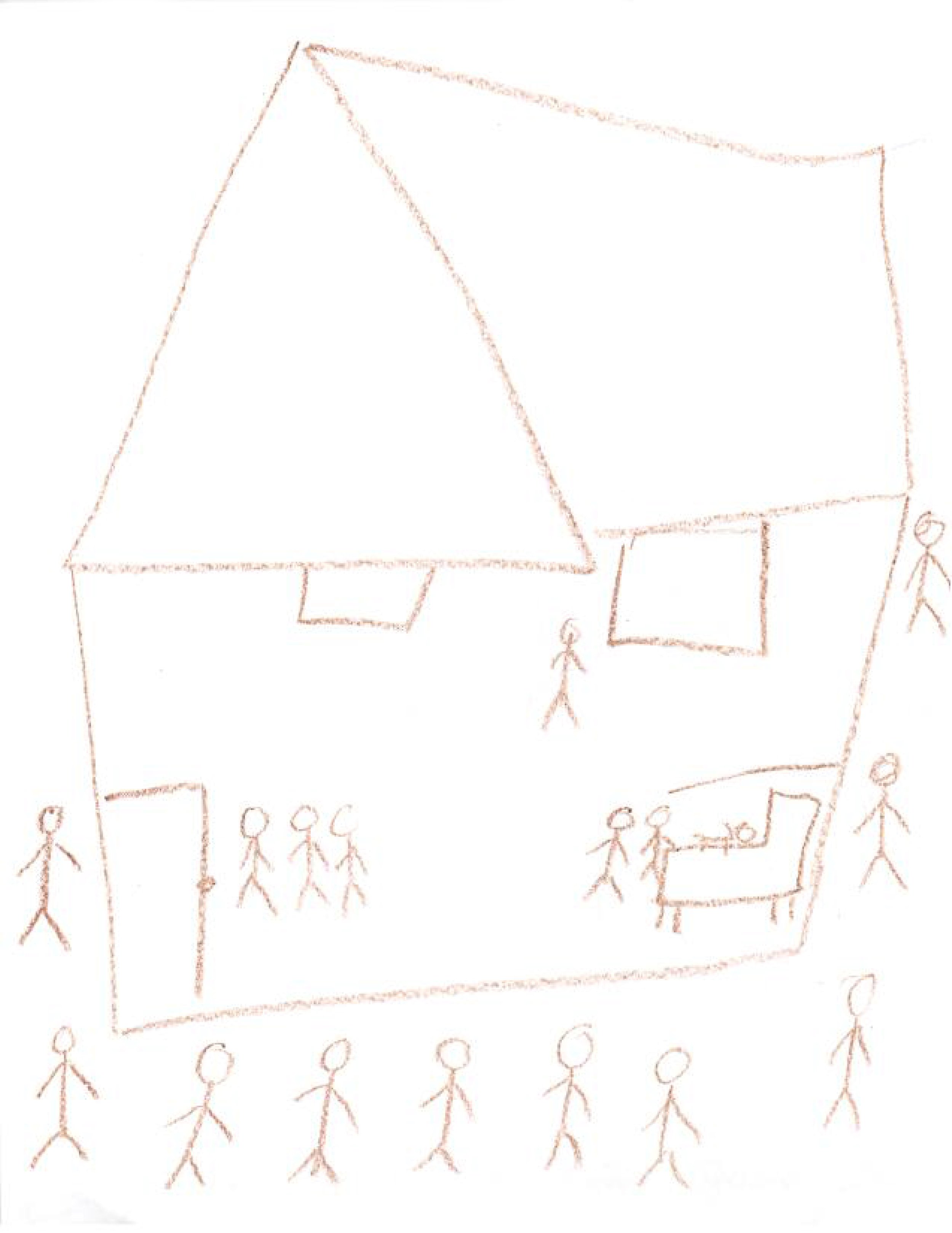Sí de Aquí, Sí de Allá
Tyler B. Davis interviews artist Mark Menjívar on storytelling as a way to empathy and action
Artist Mark Menjivar conducts a Migration Stories workshop in the Stanier Gallery at Washington and Lee University, Lexington City, Virginia, 2017. Migration Stories is an oral history project focusing on personal narratives of how we arrived to where we are now. Photo courtesy of Mark Menjivar
South Texas-based artist Mark Menjivar works at the intersection of art and social justice, exploring diverse subjects through photography, archives, oral history, and participatory project structures. He is currently the artist-in-residence with the Texas After Violence Project, which uses oral history and archives to create dialogue and action around capital punishment in Texas. In this episode of OP Talks, Menjivar talks to religion scholar Tyler B. Davis about past and present projects involving migration, religion, and Latinx history and experience. These projects include Northern Triangle, Migration Stories, and Stations. Menjivar is currently working with the Borderland Collective, a long-term participatory art and education project based in Texas. The project utilizes collaborations between artists, educators, youth, and community members to engage complex social issues and build space for diverse perspectives, meaningful dialogue, and varying modes of creation and reflection.
SUPPLEMENTAL MATERIAL
MIGRATION STORIES
Migration Stories is an oral history project focusing on personal narratives of how we arrived to where we are now.
ORAL HISTORIES
This iteration of Migration Stories was hosted in 2017 by the Krannert Art Museum at the University of Illinois-Urbana Champaign, IL.
LISTENING SESSIONS
Participants listen closely at a Migration Stories community listening event hosted by Artpace in San Antonio, TX, 2019.
PUBLICATION
Migration Stories Book Set (M. Menjivar, Printed Matter, Inc., 2020), a set of seven Risograph printed books.
They were created through community workshops that explore the historical, practical, and philosophical aspects of oral history and the question, “Can you tell me where you come from?”
Individual copies of each book were then distributed back into the communities in which they were made through public listening sessions.
To date, there have been 7 iterations in 6 cities with 238 participants that have connections to 71 countries.
Partnering institutions include the School of the Art Institute of Chicago (Chicago, IL), University of Arizona Art Museum (Tucson, AZ), Krannert Art Museum (Urbana-Champaign, IL), Washington and Lee University (Lexington, VA), Newspace Center for Photography (Portland, OR), International School of the Americas (San Antonio, TX), and Artpace (San Antonio, TX).
NORTHERN TRIANGLE
Created by Borderland Collective, the Northern Triangle exhibition opens a space for constructive dialogue and exchange around the refugee crisis along the United States-Mexico border and the long and complicated history of U.S. intervention in which the border is irrevocably entangled.
INSTALLATION
Northern Triangle Exhibition Installation, Blue Star Contemporary Art Museum (project’s original commission), San Antonio, TX, 2014.
EXHIBIT ITEMS
Drawings made by children after federal raids on their home by the United States Immigration and Customs Enforcement (ICE), 2016.
The drawings were provided by Raices, a nonprofit agency that promotes justice by providing free and low-cost legal services to underserved immigrant children, families, and refugees.
EXHIBIT ITEM
1981 FMLN [Farabundo Martí National Liberation Front] propaganda poster.
From the collection of Jack Elder, a prominent member of the Sanctuary Movement who was convicted of federal crimes for helping people who were fleeing violence in Central America during the 1980s.
STATIONS
Stations is a project created in collaboration with the community of Santa Marta, El Salvador. Participants have retold stories of fleeing violence in 1981, spending seven years in a Honduras refugee camp, and communally repatriating back to El Salvador in 1989.
PARTICIPATORY WALK
Community members gather during a participatory walk for Stations on San Antonio’s Riverwalk, 2018.

